
The Department of Electrical and Electronics Engineering (EEE), which began in 1999 with an intake of 40 students, has developed dramatically, presently housing 120 students and offering an M.Tech in Power Electronics and drives. Recognised as a research centre in 2021-2022, the department dramatically emphasises research and industry engagement, working with companies such as TVS Lucas and Appasamy Associates. The department, accredited by the NBA since 2008, is recognised among the best EEE colleges in Tamil Nadu, updating its curriculum to incorporate developments in renewable energy, electric vehicles, and artificial intelligence. It also delivers value-added courses and soft skill training to improve student employability and prepare them for competitive tests. As one of the top EEE engineering colleges in Pondicherry, it fosters a learning environment that encourages research, creativity, and technical competence.
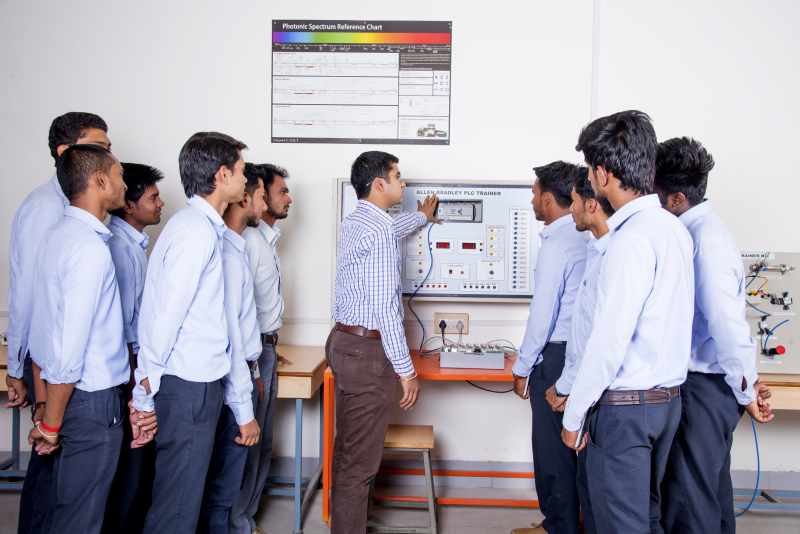

Vision
To promote proficiency in the field of Electrical and Electronics Engineering by creating a stimulating environment for research, innovation and entrepreneurship.
Mission
M1: Quality Education
To impart high quality technical education with problem solving capabilities by innovative pedagogy in emerging technologies.
M2: Industrial and Societal needs
To cater the dynamic needs of the industry and society by strengthening industry-institute interaction.
M3: Research and Innovation
To nurture the spirit of research attitude by carrying out innovative technologies pragmatically.
M4: Placement and Entrepreneurship
To inculcate the professionalism in career by advancing synergetic skills to compete in the corporate world.
PEO 1: Professional Knowledge
To possess strong educational foundation in Electrical and Electronics Engineering to attain successful career with professional responsibility.
PEO 2: Innovative Skills
To enrich the skills to design and develop innovative solutions for engineering problems in a multidisciplinary environment.
PEO 3: Ethics
To actively embrace leadership qualities for achieving professional goals with ethical values.
PEO 4: Adaptability
To enhance intellectual competency along with technical skills by adapting to the current trends through eternal learning.
PSO1: Core Proficiency
Utilize the engineering core knowledge to identify, formulate, design, and investigate the complex engineering problems of power electronics, electrical machines and power systems.
PSO2: Cutting Edge Technologies
Explore the new cutting edge technologies in the field of Electric vehicle, Automation, Artificial Intelligence, Robotics and Renewable Energy to compete in global market.
PSO3: Design and Evolution
Capability to comprehend the technological advancements with the usage of modern design tools for analysing and designing systems to confront the rapid pace of industrial innovations.
PO1: Engineering Knowledge:
Apply knowledge of mathematics, science, engineering fundamentals and an engineering specialization to the solution of complex engineering problems.
PO2: Problem Analysis:
Identify, formulate research literature and analyze complex engineering problems reaching sustainable conclusions using first principles of mathematics, natural sciences and engineering sciences.
PO3: Design and Development of Solutions:
Design solutions for complex engineering problems and design components or processes that meet specified needs with appropriate consideration for public health and safety, and cultural, societal and environmental considerations.
PO4: Conduct Instigations of Complex Problems:
Use research based – knowledge and research methods including design of experiments, analysis and interpretation of data and synthesis of information to provide valid conclusions.
PO5: Modern Tool Usage:
Create, select and apply appropriate techniques, resources and modern engineering and IT tools including prediction and modeling to complex engineering activities with an understanding of the limitations.
PO6: The Engineer and Society:
Apply reasoning informed by contextual knowledge to assess societal, safety, health, legal and cultural issues and the consequent responsibilities relevant to professional engineering practice.
PO7: Environment and Sustainability:
Understand the impact of professional engineering solutions in societal and environmental contexts and demonstrate knowledge of and need for sustainable development.
PO8: Ethics:
Apply ethical principles and commit to professional ethics and responsibilities and norms of the engineering practice.
PO9: Individual and Team Work:
Function effectively as an individual and as a member or leader in diverse teams and in multi disciplinary settings.
PO10: Communication:
Communicate effectively on complex engineering activities with the engineering community and society at large, such as being able to comprehend and write effective reports and design documentation, make effective presentations and give and receive clear instructions.
PO11: Project Management and Finance:
Demonstrate knowledge and understanding of engineering and management principles and apply these to one’s own work, as a member and leader in a team, to manage projects and in multi disciplinary environments.
PO12: Life – long Learning:
Recognize the need for and have the preparation and ability to engage in independent and life-long learning broadest context of technological change.
The Electrical and Electronics Engineering department, which began in 1999 with an intake of 40 students, has developed dramatically, presently housing 120 students and offering an M.Tech in Power Electronics and drives. Recognised as a research centre in 2021-2022, the department dramatically emphasises research and industry engagement, working with companies such as TVS Lucas and Appasamy Associates.
We are delighted to have you here and explore our vibrant academic community. We are committed to nurturing future-ready engineers through a rigorous curriculum, hands-on learning, and a strong emphasis on research and industry collaboration. We have been accredited by the NBA since 2008, and are constantly updating our curriculum to incorporate developments in renewable energy, electric vehicles, and artificial intelligence.
At SMVEC, we take pride in being recognized among the top EEE engineering colleges in Pondicherry, offering students a transformative educational experience. Whether you’re a prospective student, a research scholar, or an industry partner.
We gladly invite you to be a part of our journey toward shaping the next generation of technologists and leaders.
The department, accredited by the NBA since 2008, is constantly updating its curriculum to incorporate developments in renewable energy, electric vehicles, and artificial intelligence. It also delivers value-added courses and soft skill training to improve student employability and prepare them for competitive tests.
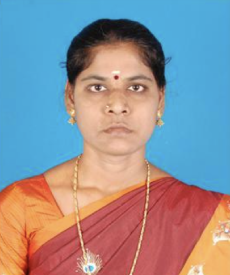
Our Electrical and Electronics Engineering department at Sri Manakula Vinayagar Engineering College provides a B.Tech in Electrical and Electronics Engineering, an M.Tech in Power Electronics and Drives, and a Ph.D. in Electrical and Electronics Engineering, emphasizing innovative power systems and renewable energy solutions.
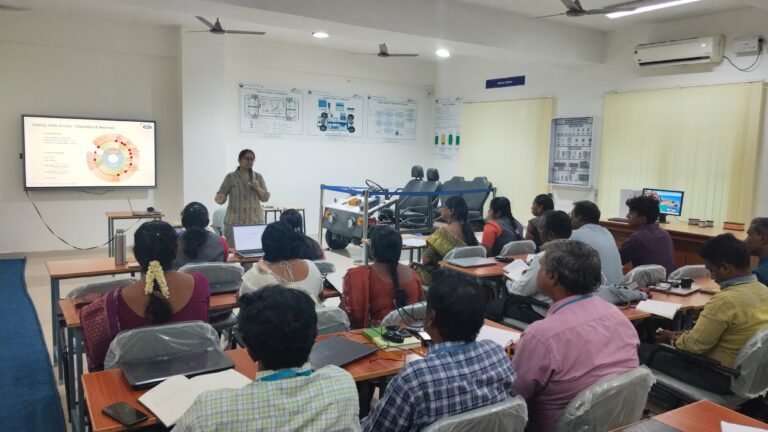
Sri Manakula Vinayagar Engineering College and TVS Training & Services signed a Memorandum of Understanding (MoU) and established a Centre of Excellence in Electric Vehicle.
This centre of Excellence has been equipped with state-of-the-art facilities to provide a conductive environment for research. Electric Vehicles Centre of Excellence is focussed on areas like BLDC/PMSM Motor Testing, Battery Management System, Cell Tester, ADAS Simulator and EV car setup.
It will serve as a hub for research, innovation, and collaboration in electric vehicle cutting-edge technology. Also, it will provide a platform for exchanging knowledge and ideas to facilitate the development of skills and expertise in this field for Students and Faculties. This centre of excellence provides value-added Industrial training with placement support.
We are highlighting the outstanding achievements of our Department of Electrical and Electronics Engineering. Our students and staff have continually demonstrated excellence in academics, research, and industry relationships, receiving several prizes, grants, and recognitions. Highlights include successful collaborations with prominent industry partners, ground-breaking research papers, and high placement rates in prestigious firms.
We are introducing our outstanding faculty members from the Department of Electrical and Electronics Engineering. Each specialises in a variety of advanced subjects like Power Electronics and Drives, Electrical Drives and Control, Power Systems, Voltage Stability, and Smart Grid technologies. Our dedicated professors and associate professors, with degrees ranging from B.Tech. to Ph.D., are committed to offering high-quality education and encouraging research excellence.
The department of Electrical and Electronics Engineering has successfully initiated the “Engineering Clinic”, an innovative forum aimed at providing students with practical exposure to the troubleshooting of Electrical and Electronics home appliances, design and development of innovative models. This initiative creates a valuable platform for students to strengthen their technical expertise and apply classroom learning to real-life applications.
The core objective of the “Engineering Clinic” is to make the students excel in design, development and repairing electronic gadgets and domestic appliances. Through this initiative, students gain the ability to diagnose and troubleshoot appliances that are not in working condition, while also enhancing their multidisciplinary knowledge and problem-solving skills.
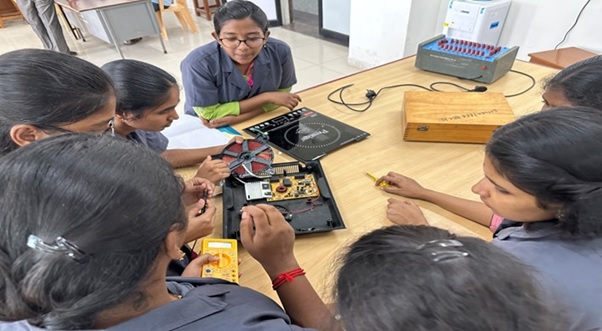
The department of Electrical and Electronics Engineering has successfully initiated the “Engineering Clinic”, an innovative forum aimed at providing students with practical exposure to the troubleshooting of Electrical and Electronics home appliances, design and development of innovative models. This initiative creates a valuable platform for students to strengthen their technical expertise and apply classroom learning to real-life applications.
The core objective of the “Engineering Clinic” is to make the students excel in design, development and repairing electronic gadgets and domestic appliances. Through this initiative, students gain the ability to diagnose and troubleshoot appliances that are not in working condition, while also enhancing their multidisciplinary knowledge and problem-solving skills.

If you have any inquiries regarding the department, please feel free to reach out to us. We are here to assist you with any questions or information you may need.
Dr. P. Jamuna, B.Tech, M.E, Ph.D.
Professor and Head,
Department of Electrical and Electronics Engineering
1. Why is SMVEC considered one of the leading EEE colleges in Pondicherry?
SMVEC stands out among EEE colleges in Pondicherry due to its NBA accreditation, industry-driven curriculum, modern laboratories, and strong placement record. The department focuses on renewable energy, electric vehicles, automation, and artificial intelligence, preparing students for real-world engineering challenges.
2. Is SMVEC ranked among the best EEE colleges in Tamilnadu?
Yes, SMVEC is recognised among the best EEE colleges in Tamilnadu for its academic standards, research initiatives, and industry collaboration. The department continuously updates its syllabus to match current technological trends and ensures students receive both theoretical depth and practical exposure.
3. What programs are offered by the EEE department at SMVEC?
The department offers a B.Tech in Electrical and Electronics Engineering, an M.Tech in Power Electronics and Drives, and a Ph.D. programme. These courses are designed to build expertise in power systems, electrical drives, smart grids, EV technologies, and advanced electronics.
4. How are placements for EEE students at SMVEC?
The EEE department has strong industry connections and provides structured placement training. Students receive technical skill development, soft skill enhancement, and industry-oriented exposure, helping them secure opportunities in reputed companies across India.
5. What facilities are available for EEE students at SMVEC?
Students have access to advanced laboratories including Power Electronics and Drives Lab, Electrical Machines Lab, EV and Hybrid Vehicle Lab, Embedded Systems Lab, and Power System Simulation Lab. The Electric Vehicle Centre of Excellence further strengthens hands-on learning and industry readiness.


Hi, I'm SMVEC Chatbot
How can I help you?
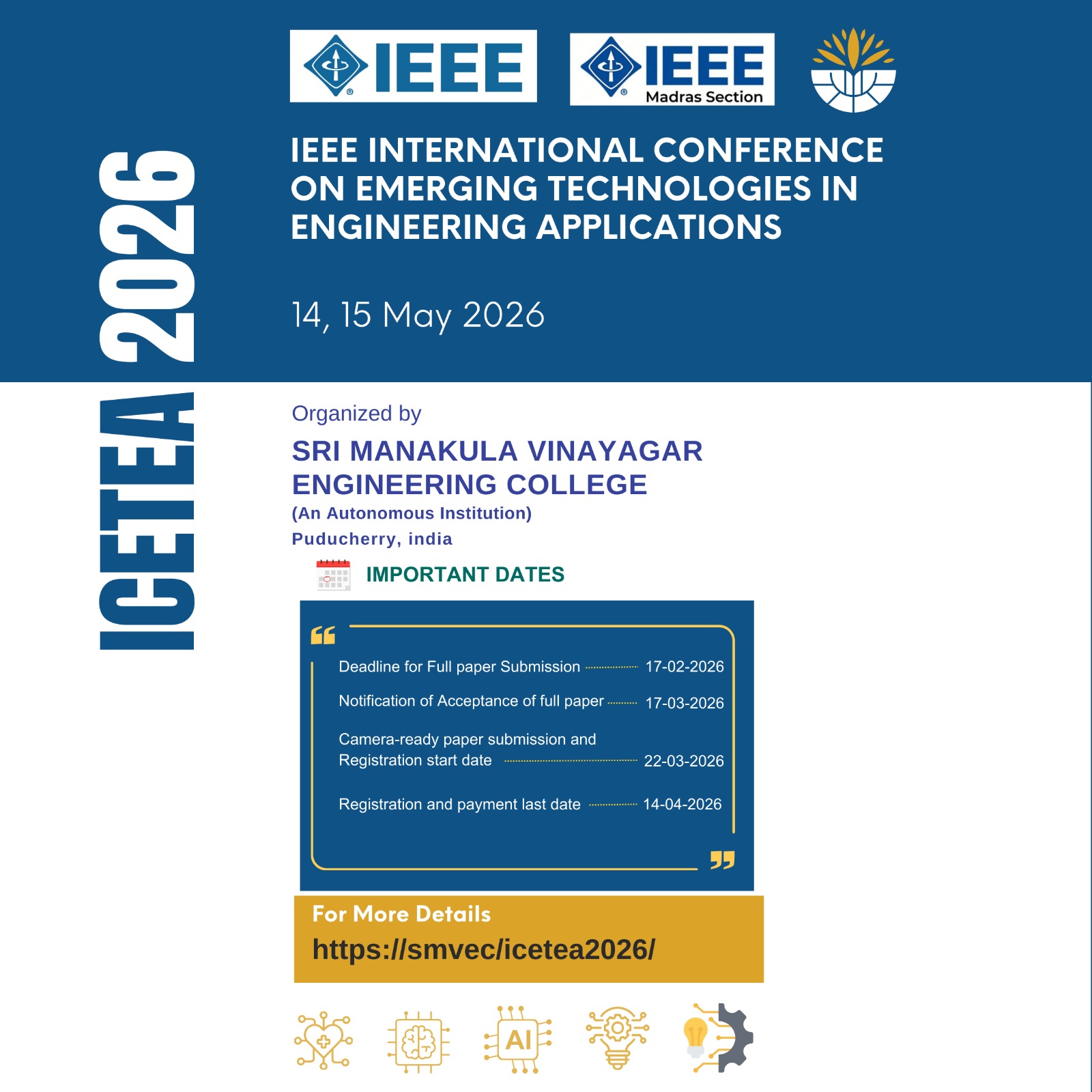
SMVEC 25 Years of Legacy | The Official Documentary